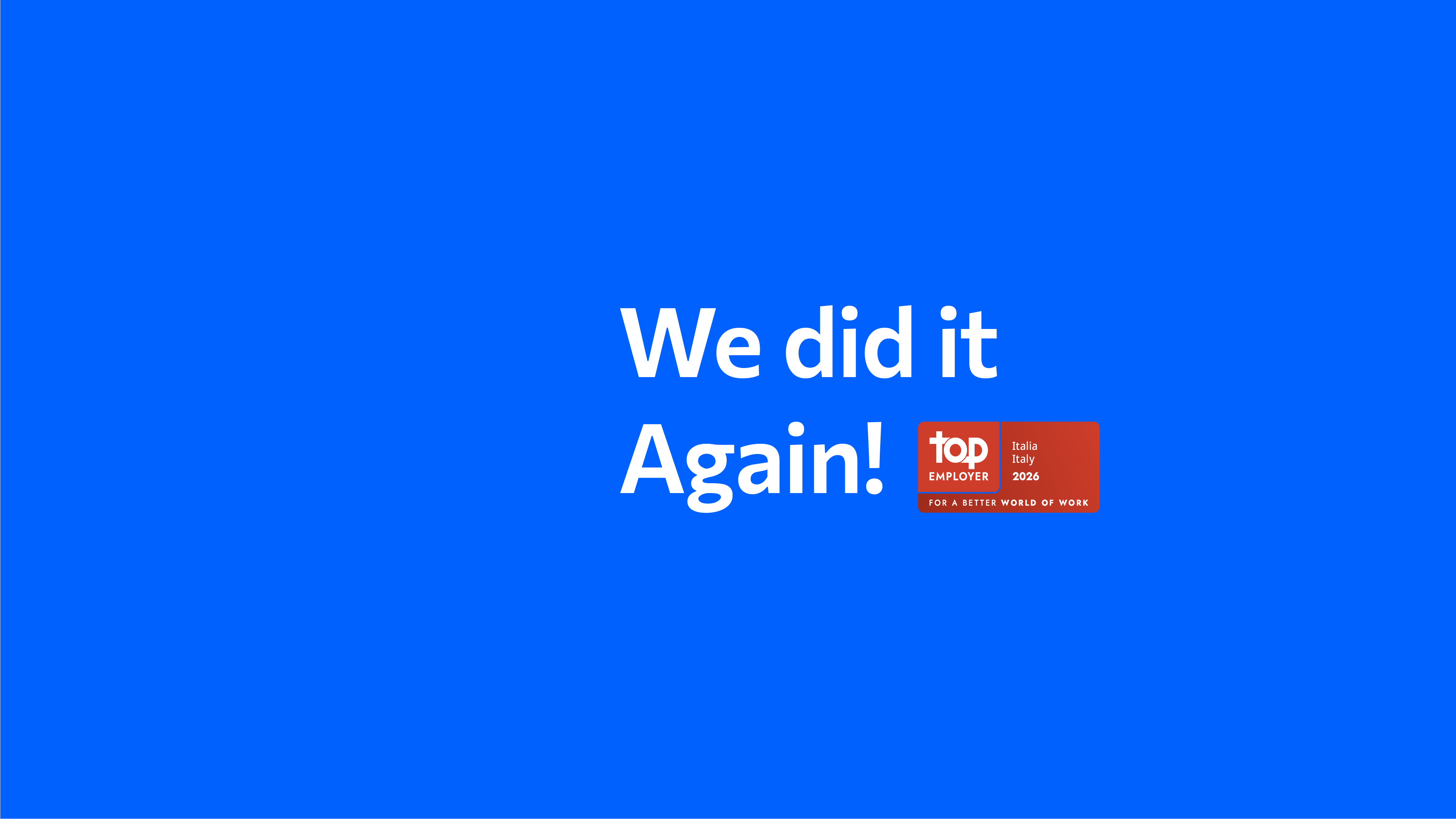ERP solutions for product-centric companies: here are the best ones
Discover the best ERP solutions for product-oriented companies. Spotlight on SAP, Infor, and Mashfrog’s expertise.

ERP Solutions to innovate management for product-centric companies
Product-centric companies—those whose business model is based on the design, production, and distribution of physical goods—require management tools capable of supporting every stage of the value chain. In this context, ERP solutions play a strategic role: they enable the integration of business processes, improve operational visibility, and optimize resources, time, and costs.
Among the many options available on the market, there are ERP software solutions specifically designed to meet the needs of product-oriented companies. These platforms offer advanced features for production planning, supply chain management, quality control, and logistics. In this article, we’ll explore the most effective ERP solutions for 2025 and take a closer look at the value Mashfrog can provide in terms of consulting and implementation. For a broader overview of the ERP topic, check out the article: “ERP: What It Is and Why It’s Essential for Businesses.”
ERP software: which solutions for product-oriented companies
ERP solutions for product-centric companies are distinguished by their ability to manage the entire product lifecycle in an integrated way—from planning to delivery, including production, quality control, logistics, and after-sales service. Unlike generic ERP software, which is typically focused on standard processes such as accounting, sales, or human resources, these systems provide specialized vertical functionalities tailored to manufacturing and industrial needs, adapting to scenarios marked by high operational variability.
Product-oriented companies often face custom processes, such as make-to-order production or configure-to-order production, where each order may have unique characteristics. In these scenarios, an effective ERP must precisely manage product configuration, multi-level bills of materials, advanced warehousing, material requirements planning (MRP), and batch traceability. It must also be capable of supporting production flexibility, coordination across multiple facilities, and optimization of both internal and external logistics flows.
According to Gartner, the best ERP software for product-centric companies go beyond covering basic functions—they must also integrate emerging technologies such as artificial intelligence, the Internet of Things (IoT), predictive analytics, and advanced document management. The goal is to enable a data-driven decision-making model that allows companies to act in real time, anticipate issues, and continuously improve efficiency.
Another key differentiator is the ability to centralize data from all company departments—production, purchasing, warehouse, sales, and customer service—and present this information in a structured and visual format through dashboards, KPIs, and customizable reports. In this way, the ERP becomes not just an operational system but a true strategic control center for the entire organization.
The most advanced ERP solutions also offer modular architectures, allowing companies to implement functionalities progressively, in line with their timeline and priorities, with the flexibility to easily expand toward the cloud or other technologies in the future.
The best ERP software
In today’s ERP landscape, some platforms stand out for their comprehensive functionality, industry-specific specialization, and reliability. Below is an overview of the leading ERP software recommended for product-oriented companies:
- SAP S/4HANA Cloud: Among the most advanced and widely used enterprise-level solutions, SAP S/4HANA is known for its modular structure and strong customization capabilities. The Public Cloud Edition is particularly suited for companies seeking scalability, continuous innovation, and integration with SAP BTP technologies.
- Infor CloudSuite / Infor M3: These ERP solutions provide targeted functionalities for industries such as discrete manufacturing, process manufacturing, and distribution. Infor is praised for its usability, cloud-native approach, and out-of-the-box vertical solutions that speed up implementation.
- Microsoft Dynamics 365 Supply Chain Management: Ideal for mid-sized companies, this solution offers operational flexibility, integration with the Microsoft ecosystem, and predictive analytics tools. It’s especially suitable for evolving business contexts and for those looking for an easily extendable platform.
- IFS Cloud: Designed for asset-intensive industries like energy, telecommunications, and services, IFS Cloud enables the integration of production, maintenance, and customer service in a single flexible and modern ERP environment.
- QAD Adaptive ERP, Epicor Kinetic, Oracle NetSuite, and Odoo ERP: These solutions round out the list with offerings tailored for SMEs and regulated industries. They stand out for modularity, quick deployment, and a strong cost-benefit ratio.
How to choose the right ERP solution
Choosing the ideal ERP solution for a product-centric company cannot rely on generic criteria—it must carefully consider the organization's specific operational, organizational, and strategic needs. Key factors include company size, the complexity of production processes, the level of customization required, and the organization's digital maturity, including the availability of internal resources to manage change.
One of the key decisions concerns the deployment model: cloud or on-premise. Cloud ERP solutions, which are becoming increasingly common, offer major advantages such as automatic updates, instant scalability, reduced infrastructure costs, and secure remote access from any device. These benefits make them ideal for businesses seeking greater operational agility—especially in multi-site or rapidly expanding contexts. Additionally, cloud platforms are often natively designed to integrate with artificial intelligence tools, advanced analytics, and mobile applications.
On-premise solutions, on the other hand, are installed on the company’s own servers and provide maximum control over data, greater potential for deep customization, and full integration with any existing legacy systems. This model is preferred by companies operating in highly regulated industries or those that manage their IT infrastructure internally for reasons of security, compliance, or technological strategy.
A key element in the selection process is also the vendor ecosystem and the network of implementation partners. Having access to an experienced and reliable partner can make a critical difference at every stage of the project—from initial configuration to post-go-live support. Lastly, it’s essential to assess the software’s technology roadmap to ensure it can evolve over time with new features, regulatory updates, and digital innovations.
Mashfrog ERP solutions
Mashfrog Group positions itself as a strategic partner for product-centric companies looking to adopt advanced ERP solutions capable of addressing complex and dynamic needs. Mashfrog’s distinctive value lies in its combination of industry-specific expertise, an integrated consulting approach, and strong technological know-how, developed through high-impact ERP projects at the international level.
Within its Enterprise Digital Evolution Business Unit, Mashfrog delivers projects based on SAP S/4HANA, using a methodology that allows implementation to be tailored to each client’s specific needs. Mashfrog’s SAP team includes functional consultants, solution architects, and ABAP/Java developers who work closely with clients’ IT departments and business units. Their experience spans projects in the manufacturing, automotive, energy, and industrial retail sectors, with a particular focus on integrating modules for production, advanced logistics (EWM), controlling, and asset management.
In parallel, Mashfrog’s Infor Global Practice focuses on the design and implementation of Infor CloudSuite and Infor M3 platforms, with deep expertise in configuring vertical solutions for discrete manufacturing, food, fashion, chemical, and industrial distribution sectors. The Infor team works with multi-tenant cloud architectures and leverages the Infor OS platform to develop extensions, customized workflows, and integrations with advanced technologies such as AI, IoT, and predictive analytics tools.
Mashfrog’s strength lies in the integration of technological expertise with deep knowledge of industrial processes. Every ERP project is driven by a results-oriented consulting approach that begins with an analysis of operational and strategic needs and leads to the creation of scalable digital ecosystems capable of evolving alongside the business. In this way, adopting an ERP solution becomes not just a technological upgrade, but a catalyst for change and growth.
Product-centric ERP: a strategic lever for industrial competitiveness
Choosing an ERP solution designed for product-oriented companies means equipping your business with a tool capable of transforming how it operates, responds, and competes. The ability to integrate production, logistics, supply chain, and finance—combined with the power to leverage real-time data for faster decision-making—has become an essential competitive advantage.
SAP S/4HANA and Infor CloudSuite continue to stand out as two of the most robust and innovative platforms for this type of company. Both offer a mix of deep functionality, industry-specific verticalization, and continuous technological evolution—enabling organizations to maintain high operational efficiency while also innovating their business models.
In this context, Mashfrog Group stands out for its ability to translate technology into real business value. The combination of technical expertise, industry experience, and strategic vision enables the company to successfully manage even the most complex ERP projects. Organizations that choose Mashfrog are not merely adopting a new management system—they are embarking on a conscious and sustainable digital transformation journey, tailored to meet today’s challenges and tomorrow’s opportunities.


